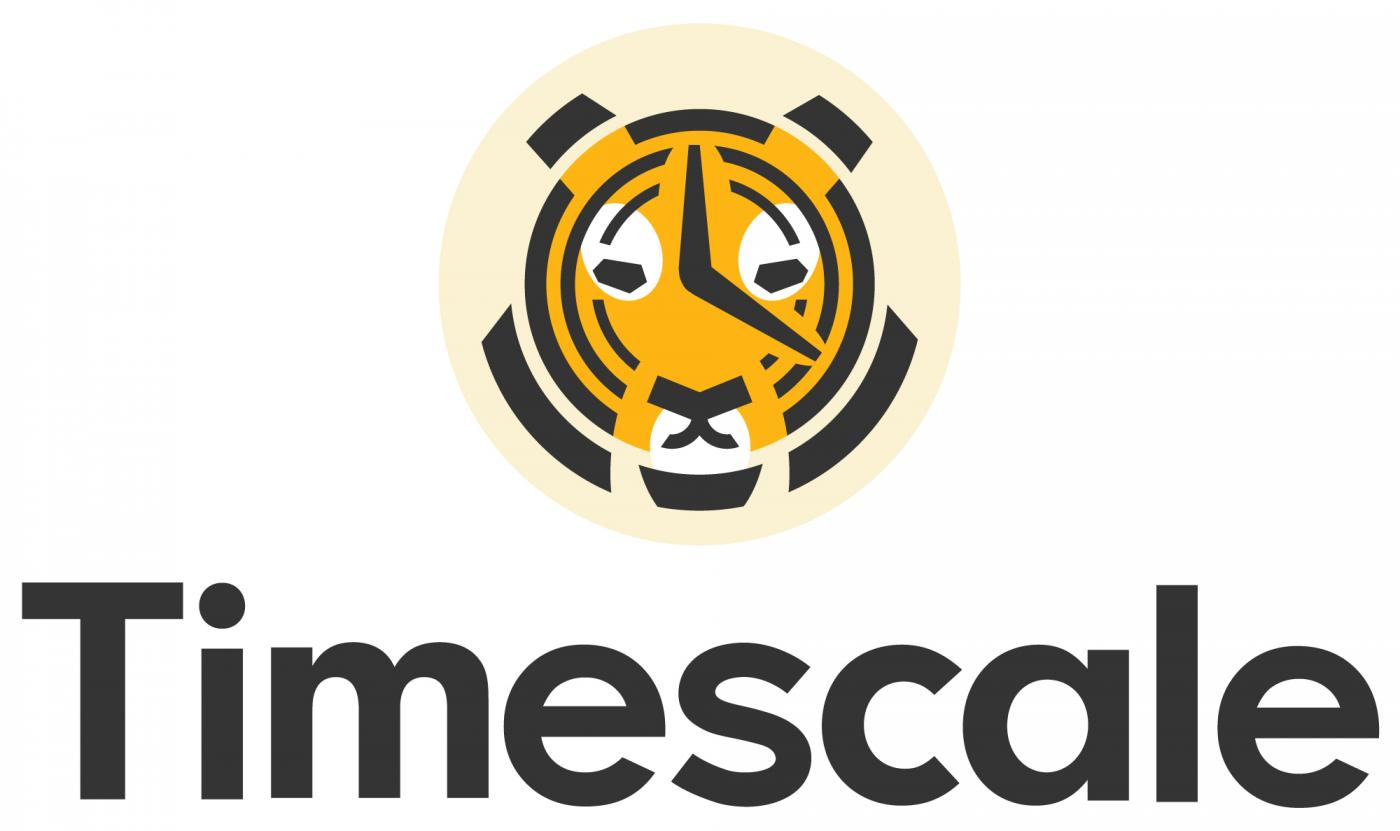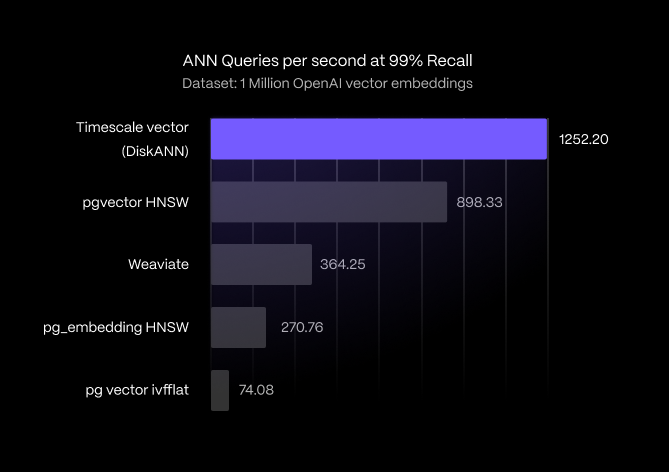 AI
AI
 AI
AI
 AI
AI
Timescale Inc., the creator of a cloud time-series database that’s based on PostgreSQL, is looking to cater to artificial intelligence developers with the launch of its latest vector capabilities.
Announced today, Timescale Vector sits atop the company’s cloud-based PostgreSQL platform, enabling the management of vector embeddings alongside the relational, time-series, analytics and event-based data that it could already handle. Developers now have access to all of the data needed to power the most advanced AI models from a single database, the company promises.
Timescale, which has raised more than $70 million in venture capital over a series of funding rounds, is the creator of a time-series database that stores information chronologically, in the order that it is generated. This is useful for applications such as application logs, which describe the latency computing systems have experienced over certain timeframes.
It’s also useful for financial applications, providing a way to see how the value of stocks and shares change over time. Industrial firms use time-series data to monitor sensor readings showing, for example, the temperature of a piece of machinery.
The database is based on the open-source PostgreSQL database that was originally built as a project at the University of California at Berkeley. Today it’s one of the most widely used database formats in the world, compatible with numerous database management tools. So developers will feel instantly at home when they first begin using the Timescale database.
With the addition of vector search capabilities, available in early access from today, Timescale is expanding its horizons and positioning itself as a database that can also feed next-generation AI applications. Vectors provide a way to store unstructured data such as images, audio and handwritten text that cannot be represented in traditional databases. They can be thought of as geometric or numerical representations of semantically similar data.
Generative AI models such as GPT-4, which powers ChatGPT, work by measuring the similarity between vectors in order to construct sentences or images probabilistically, based on prompts. In this way, AI models that can access information stored as vectors can be vastly more powerful than those that cannot.
Timescale says AI developers currently have two choices. Either they can use a niche vector database that’s difficult to work with, or they can use a more familiar database and add extensions for vector support.
Niche databases for vector data have are operationally complex, the company says, requiring developers to maintain a separate database, so teams must duplicate, synchronize and keep track of data across multiple systems. Moreover, it says, engineering teams face the steep learning curve of learning a new query language, system internals, application programming interfaces and optimization techniques.
Timescale says its addition of native vector capabilities can help developers to simplify the AI application stack by using a single database only. Moreover, because the Timescale database is essentially PostgreSQL with enhanced features, it inherits more than 30 years of battle tested robustness and reliability, the company said.
In terms of benefits, vector capabilities will enable developers to accelerate search with a cutting-edge Approximate Nearest Neighbor index. According to the company, Timescale pairs its ANN index with its own indexing algorithms to achieve 243% faster search speed than the specialist vector database Weaviate, and between 39% and 363% faster search performance than alternative PostgreSQL-based search indexes.

The time-series nature of Timescale also means it’s uniquely able to optimize time-based vector search to find the most recent embeddings. It can further constrain vector search according to a time-based range, or by the age of data, enabling it to retrieve historical data such as chat histories.
“The launch of Timescale Vector signifies our commitment to continuing to solve the biggest developer pain points so they can focus on building new AI applications more efficiently on a database foundation that’s fast, reliable and battle-tested,” said Timescale co-founder and Chief Executive Ajay Kulkarni.
At launch, Timescale is partnering with the AI application frameworks LangChain and LlamaIndex to integrate its database with two of the most popular developer tools for building AI applications.
Support our open free content by sharing and engaging with our content and community.
Where Technology Leaders Connect, Share Intelligence & Create Opportunities
SiliconANGLE Media is a recognized leader in digital media innovation serving innovative audiences and brands, bringing together cutting-edge technology, influential content, strategic insights and real-time audience engagement. As the parent company of SiliconANGLE, theCUBE Network, theCUBE Research, CUBE365, theCUBE AI and theCUBE SuperStudios — such as those established in Silicon Valley and the New York Stock Exchange (NYSE) — SiliconANGLE Media operates at the intersection of media, technology, and AI. .
Founded by tech visionaries John Furrier and Dave Vellante, SiliconANGLE Media has built a powerful ecosystem of industry-leading digital media brands, with a reach of 15+ million elite tech professionals. The company’s new, proprietary theCUBE AI Video cloud is breaking ground in audience interaction, leveraging theCUBEai.com neural network to help technology companies make data-driven decisions and stay at the forefront of industry conversations.